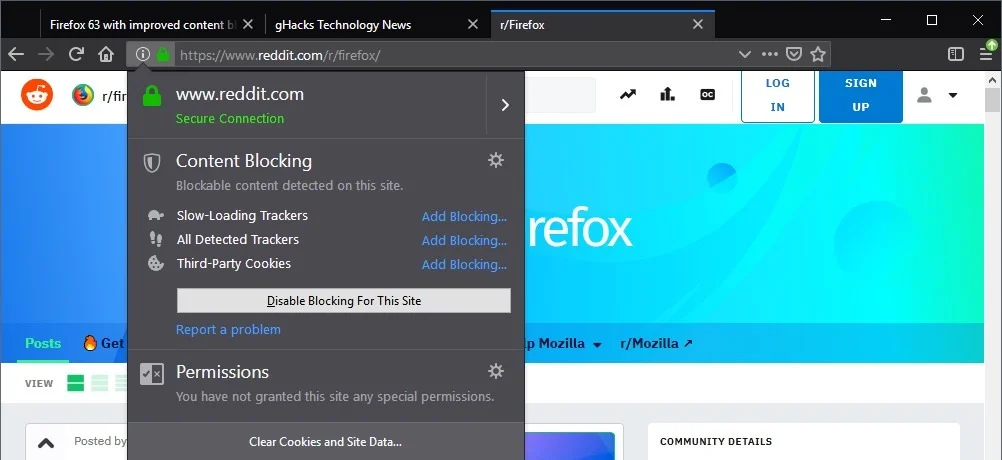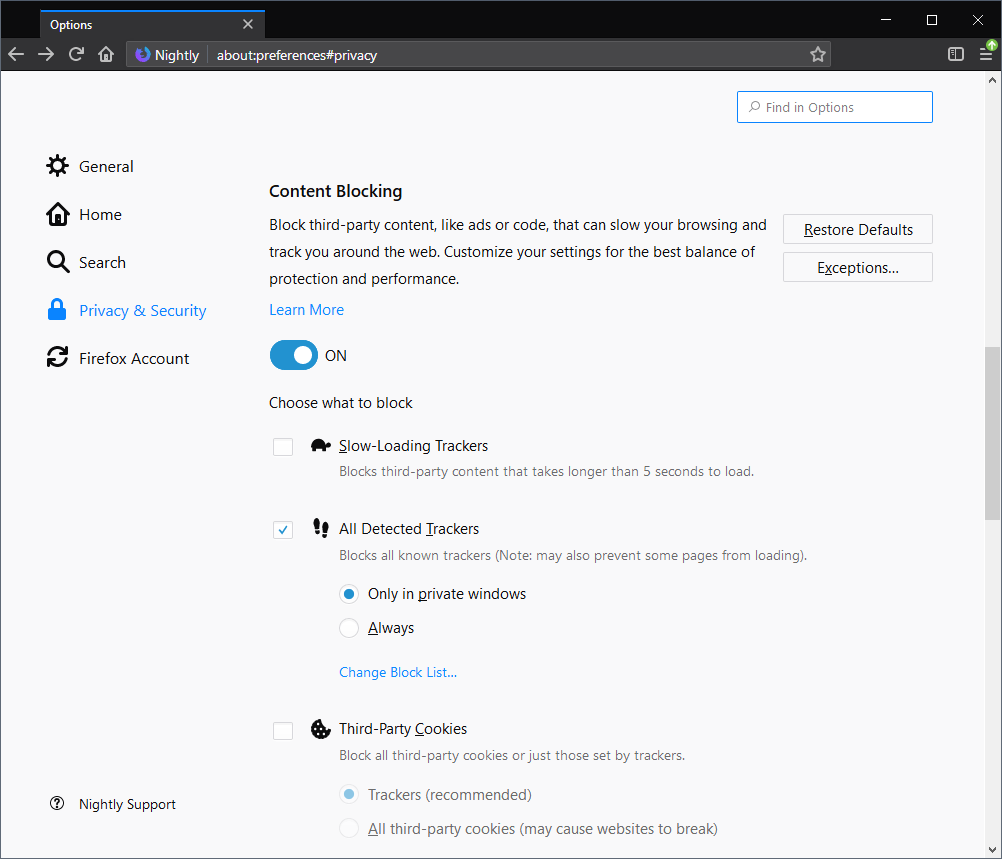Mozilla plans to push privacy in Firefox
In Changing Our Approach To Anti-Tracking, Mozilla revealed plans to improve the privacy protection of Firefox users and the performance of the browser through the improved implementation of content blocking in the web browser.
Firefox will protect users by blocking tracking by default and improve performance at the same time according to Mozilla.
We reviewed the new content blocking options that Mozilla tests in Firefox Nightly currently already in July. The new feature, called Content Blocking in Nightly, integrates Firefox's long standing feature Tracking Protection and other content blocking options, and makes these more accessible in the browser.
Mozilla launched Tracking Protection in 2014 in Firefox Nightly but enabled it for Private Browsing only in Firefox 42. Two years later, Firefox users could enable Tracking Protection for regular browsing sessions as well.
Competing browsers introduced ad-blocking and content blocking functions of their own. Brave browser with its block-all approach, Opera browser with its integrated ad-blocking feature, and even Google launched a content blocker in Chrome to block advertisement on sites that use certain ad formats the company deems undesirable.
Mozilla's privacy push in Firefox

Mozilla plans to test and implement several privacy-improving features in the Firefox browser in the coming months.
A new blog post on the official Mozilla blog highlights three key areas of importance.
- Page Load Performance improvements thanks to the blocking of slow-loading trackers.
- Blocking storage access and cookies from third-party tracking content.
- Blocking harmful practices such as crypto-currency mining or fingerprinting.
Starting in Firefox 63 and dependent on a Shield study that Mozilla plans to run in September, Firefox will block slow-loading trackers automatically for all users in all browsing modes. Any tracker with a loading time of 5 seconds or longer is classified as a slow loading tracker by Firefox. Mozilla has high hopes that the blocking of slow loading trackers will improve the performance for Firefox users.
In Firefox 65, Mozilla plans to strip cookies from third-party tracking content and block storage access provided that a Shield study in September will yield satisfactory results.
Last but not least, Firefox will block harmful scripts and practices by default . Mozilla did not reveal a target version for the implementation only that it will land in a future version of the web browser.
Firefox Nightly users can test the content blocking functionality right now already. Current versions of Nightly display content blocking options in the preferences and when users click on the information icon next to the site's address in the address bar.

Current options allow users to block slow loading trackers, all detected trackers, and third-party cookie trackers or all third-party cookies.
The content blocking functionality supports exceptions to allow certain sites to run identified trackers, e.g. to avoid site breakage.
Is it enough?
Firefox will block some forms of tracking in the near future and that is definitely a good thing. Some may question why Mozilla makes a distinction between slow-loading trackers and all trackers in Firefox, and why Firefox does not block all trackers automatically by default.
One possible explanation for that is that blocking all trackers may prevent certain pages from loading correctly.
Still, with Google not being able to implement full-scale ad-blocking in Chrome, it is an area that Firefox could really outshine Google Chrome if implemented correctly.
The blocking of slow-loading trackers may be beneficial to privacy as well, but it is first and foremost an attempt to improve the performance of Firefox since any other tracker that is not slow-loading is still loaded by default.
Now You: What would you like to see in Firefox in this regard?
This article was first seen on ComTek's "TekBits" Technology News

- Log in to post comments